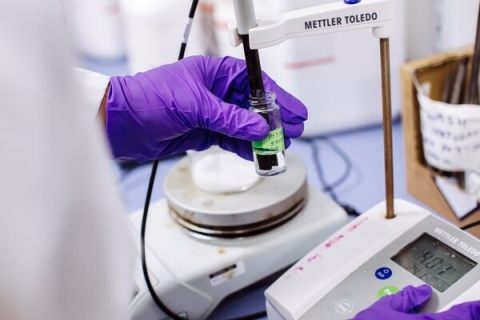

The STOP COVID-19 project will receive £1,250 as the winner of the competition run by the Health and Wellbeing research theme
17 April 2020
2 min read
A research project to understand how COVID-19 spreads has won first prize and crucial funding in a competition to provide solutions to the coronavirus pandemic.
The Sequencing and Tracking Of Phylogeny in COVID-19 study (STOP COVID-19), led by Dr Sam Robson from the Centre for Enzyme Innovation, will receive £1,250 as the winner of the competition run by the University’s Health and Wellbeing research theme.
Second place and £300 went to a team led by Lisa Hyatt, a Teaching Fellow in the School of Health & Care Professions, for developing an online hub to support the wellbeing and mental health of undergraduate health and social care students during major incidents. In third place was a project led by Dr Paul Gorzcyinski, Senior Lecturer in the School of Sport, Health & Exercise Science - The Virtual Six Minute Walk Test for individuals recovering from COVID-19 - that receives £250.
There has been a fantastic and rapid response by staff to the coronavirus crisis. These small prizes highlight the breadth of just some of the projects that are being carried out at the present time.
Professor Gordon Blunn, Theme Director for Health and Wellbeing
The competition was open to all research staff across the University with the aim of seeking simple ideas and innovations to solve some of the coronavirus-related issues faced by society. A panel led by Professor Gordon Blunn, Theme Director for Health and Wellbeing, chose the winners.
Professor Blunn said: “There has been a fantastic and rapid response by staff to the coronavirus crisis. These small prizes highlight the breadth of just some of the projects that are being carried out at the present time.”
The three successful projects now go forward to a second competition where project funds for further development will be considered.
Professor Blunn added: “Other universities in the region (Southampton and Bournemouth) are running similar competitions and we will look to collaborate with them where appropriate with these initiatives.”
